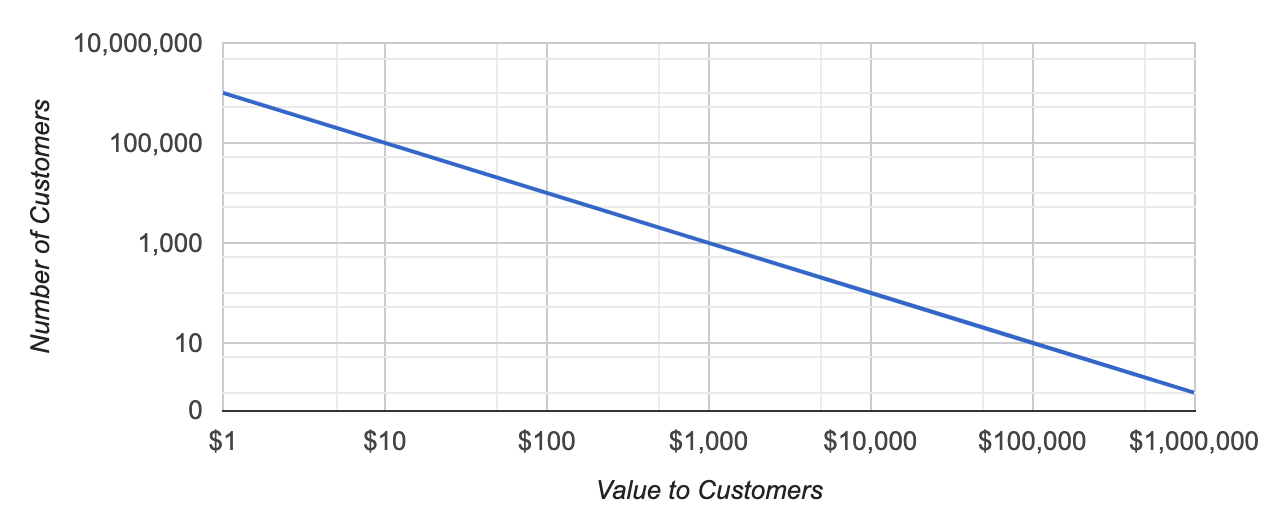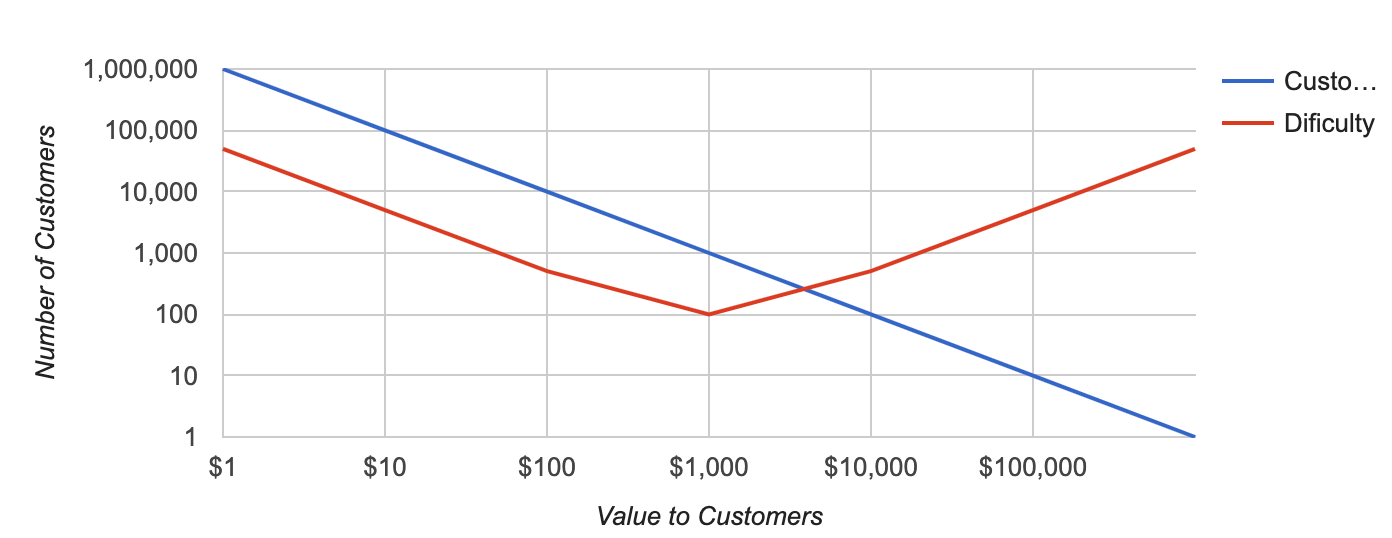On the Value of Software

Paul McMahon
One of the biggest challenges in moving from a software developer to entrepreneur has been changing my perception of the value of software. As a developer, the underlying assumption was the more functionality software had, the more valuable it was. This proposition was comforting, as it meant the value I was creating was directly proportional to my effort creating it. Unfortunately, it was categorically wrong.
Instead of being intrinsically valuable, the value of the software to customers dictates the value. If we were to express it as an equation, we could do so with the following:
software value = value to a customer × the number of customers
By looking at value in this way, when we have a goal for the value of our software, we can then plot our possible routes to success. For instance, if we set the value to one million dollars then we get the following.

The most important thing to note is the scale of this graph: both axis are logarithmic, so if we increase the value of our software ten times, we need ten times less customers, and vice versa.
The Relationship Between Software Value and Difficulty
High value software is intrinsically more difficult to create than low value software, as is obtaining a large number of customers more difficult than a small number. If we construct a naïve model for difficulty, where the total difficulty is the sum of the difficulty of creating value and that of increasing the number of customers, we can add an arbitrary measurement of difficulty to our graph.
 Although the value of the minima depends on the ratio of the two difficulties, it lies somewhere in the center of the graph.
Although the value of the minima depends on the ratio of the two difficulties, it lies somewhere in the center of the graph.
Implications on Funded vs Bootstraped Startups
One fundamental difference between funded and bootstrapped startups is how they approach risk. The primary goal of a funded startup is to maximize return on investment. In exchange for this, they can take large risks, and don’t need to see immediate returns. However, bootsrapped startups need to focus on minimizing risk over maximizing return, and should see a return on investment as soon as possible.
Following from this, a bootstraped startup should focus on striking a balance between customers and value. This is exactly the advice we’ve heard time and again from the likes of 37signals, one of the most successful bootstraped software startups.
Your value proposition is at the core of your startup. By being aware of it, and the implications of it, you can dramatically increase your chances of success.